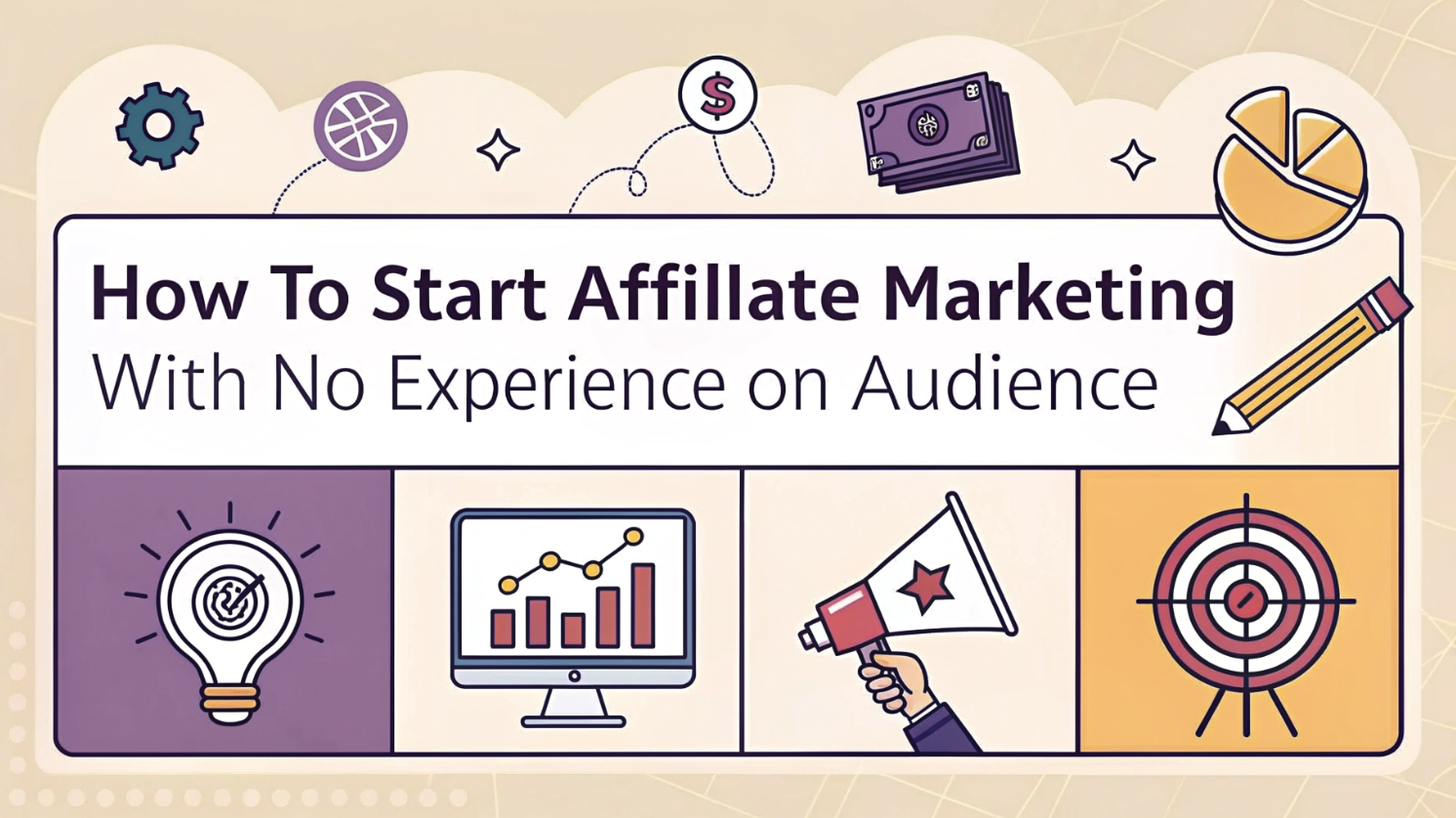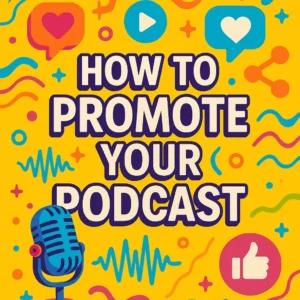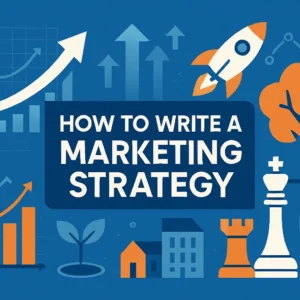
Starting affiliate marketing with no audience or experience might feel overwhelming. You may wonder how to start affiliate marketing with no audience and if success is even possible. The truth is, many successful affiliate marketers began exactly where you are now. For example, Matt Diggity built a $400k monthly income by mastering SEO, while Michelle Schroeder-Gardner turned her blog into a $100k-per-month business. These stories prove that you don’t need an audience to start.
What you need is determination, a clear strategy, and the willingness to learn. Affiliate marketing offers a unique opportunity to grow from scratch. With the right approach, you can create value, build trust, and achieve financial freedom.
What is Affiliate Marketing and Why Start It?
Understanding Affiliate Marketing
Affiliate marketing is a performance-based advertising model where you earn a commission by promoting a company’s products or services. Companies partner with affiliates like you to drive traffic, generate leads, or boost sales. You act as a middleman, connecting potential customers to the brand. This billion-dollar industry thrives on a simple concept: you promote, and the company compensates you for your efforts. Whether it’s through clicks, impressions, or purchases, your role is to guide users toward the company’s offerings.
Unlike other online income methods, affiliate marketing doesn’t require advanced technical skills or ownership of the product. You focus on marketing, while the company handles inventory, customer service, and delivery. This makes it an ideal choice for beginners looking to start their journey in the digital space.
Benefits of Affiliate Marketing for Beginners
Affiliate marketing offers several advantages, especially if you’re just starting out. Here’s a quick breakdown:
|
Benefit |
Description |
|---|---|
|
Earning Potential |
You can create a second income stream without leaving your current job. |
|
Flexibility & Freedom of Time |
Work on your schedule, from anywhere, without needing specialized skills. |
|
Low Start-Up Costs |
No need to invest in inventory or handle customer service, keeping your expenses minimal. |
This business model also allows you to learn valuable digital marketing skills while earning. You gain hands-on experience in content creation, SEO, and audience engagement. Plus, the flexibility to work from anywhere with an internet connection makes it perfect for those seeking freedom in their careers.
Why You Don’t Need an Audience to Start
Starting affiliate marketing with no audience might seem intimidating, but it’s entirely possible. Every successful affiliate marketer began with zero followers. The key lies in taking the right steps to build your foundation.
You don’t need a massive following to succeed. Instead, focus on creating valuable content that resonates with your target audience. Platforms like blogs, YouTube, and forums allow you to reach people organically. By leveraging SEO and untapped platforms, you can attract traffic without relying on an existing audience.
Many beginners mistakenly believe that automation or simply sharing links will lead to success. However, building trust and credibility is essential. Even without followers, you can establish yourself as a reliable source of information. This trust becomes the cornerstone of your affiliate marketing business.
How to Start Affiliate Marketing with No Audience

Choose a Profitable Niche
Choosing the right niche is the foundation of your affiliate marketing business. A profitable niche ensures that your efforts yield results. Focus on areas with high demand and earning potential. Some of the most lucrative niches for beginners include:
-
SaaS and marketing software
-
Finance
-
Health & Nutrition
-
Travel
-
Beauty and Skincare
-
Online Education
-
Gaming
-
Home and Garden
-
Pet Products
When selecting a niche, think about your interests and expertise. A niche you’re passionate about will keep you motivated. Research trends and competition to identify gaps you can fill. A well-chosen niche allows you to create content that resonates with your audience and builds trust.
Find the Right Affiliate Programs
Once you’ve chosen a niche, the next step is to join an affiliate program that aligns with it. The right program can significantly impact your success. Here are some beginner-friendly options:
-
Fiverr Affiliate Program: Offers up to $150 per referral and promotes a wide range of products.
-
Rakuten Advertising: Features a low barrier to entry and diverse product options.
-
AppSumo: Provides up to 100% commission on sales, focusing on tech products and software deals.
-
Amazon Associates Program: Easy to use and trusted, though it offers lower commission rates.
When evaluating affiliate marketing programs, consider factors like commission rates, product relevance, and cookie duration. For example, recurring commissions can provide long-term income. Research the program’s reputation and ensure it aligns with your niche. A good affiliate marketing program simplifies your journey and maximizes your earnings.
Select Platforms to Promote Your Links
Promoting your affiliate links effectively is crucial, especially when you have no audience. Begin by leveraging platforms that enable organic or paid reach to potential customers. Some effective options include:
-
Paid Advertising Options: Use Google Ads for search engine visibility or display ads on websites.
-
Social Media Advertising: Platforms like Facebook, Instagram, and Pinterest help you target specific demographics.
-
Native Advertising: Tools like Taboola or Outbrain offer less intrusive ad placements.
-
Solo Ads: Purchase slots in established email lists to reach a targeted audience.
-
Influencer Partnerships: Collaborate with influencers to tap into their existing followers.
Each platform has its strengths. For instance, Google Ads can drive immediate traffic, while social media ads allow precise targeting. Experiment with different platforms to find what works best for your niche. Consistent promotion helps you build visibility and grow your affiliate marketing business.
Create Content That Adds Value
To succeed in affiliate marketing, you need to create content that resonates with your audience. Valuable content builds trust and encourages engagement, even if you have no audience initially. Start by focusing on content that educates, entertains, or solves problems for your target audience.
Here are some effective content types to consider:
-
Infographics: Simplify complex ideas with visually appealing graphics. These are shareable and help you reach a broader audience.
-
Product Reviews: Offer honest evaluations of products. Highlight benefits and address potential concerns to help buyers make informed decisions.
-
Webinars: Host live or recorded sessions to educate your audience. Use these to showcase affiliate products while establishing your authority.
-
E-books: Write in-depth guides on topics related to your niche. These can position you as an expert and provide opportunities to promote affiliate links.
-
Podcasts: Share insights and naturally integrate affiliate products into your discussions. Podcasts build rapport with listeners and foster trust.
When you create content, focus on quality over quantity. Research your niche thoroughly to understand what your audience needs. Use tools like Google Trends or AnswerThePublic to identify trending topics. Consistently delivering valuable content will set the foundation for your affiliate marketing business.
Promote Affiliate Links Effectively
Promoting your affiliate links strategically is essential for conversions. Start by embedding links naturally into your content. For example, include them in blog posts, product reviews, or tutorials. Avoid overloading your content with links, as this can appear spammy.
Here are some best practices to promote your affiliate links:
-
Display affiliate disclosures prominently. Transparency builds trust with your audience.
-
Promote products relevant to your niche. Irrelevant promotions can harm your credibility.
-
Use multiple platforms. Share links on blogs, YouTube videos, and social media posts.
-
Build an email list. Send newsletters with valuable content and include affiliate links.
-
Track your campaigns. Use tools like Google Analytics to monitor performance and optimize strategies.
Social media platforms like Instagram and TikTok can also help you promote affiliate links. Add links to your bio or use tools like Linktree to consolidate them. Engaging posts with clear calls to action can drive traffic effectively.
Consistency and authenticity are key. When you genuinely believe in the products you promote, your audience will trust your recommendations. This trust is the cornerstone of a successful affiliate marketing program.
Strategies for Affiliate Marketing Without Followers
Use SEO to Drive Traffic
SEO (Search Engine Optimization) is your best friend when starting affiliate marketing without followers. It helps you attract users actively searching for solutions related to your niche. You don’t need an audience to begin; you need the right keywords and strategies.
-
Conduct keyword research to find terms your target audience searches for. Tools like Google Keyword Planner or Ubersuggest can help you identify high-traffic, low-competition keywords.
-
Optimize your content with on-page SEO techniques. Use relevant keywords in your title tags, meta descriptions, and headers to improve visibility in search results.
-
Create high-quality blog posts, guides, or tutorials that solve problems or answer questions. This builds trust and encourages clicks on your affiliate links.
-
Share your content on social media platforms tailored to your niche. This can help you grow an audience organically while driving traffic to your affiliate marketing business.
Consistency is key. Regularly updating your content and refining your SEO strategy will help you rank higher on search engines and attract more visitors.
Leverage Untapped Platforms
Untapped platforms offer a unique opportunity to stand out in affiliate marketing without followers. Beginners often overlook these tools, but they can provide a solid foundation for your affiliate marketing business.
-
Website design platforms like Wix or Squarespace allow you to create visually appealing sites with built-in SEO and marketing tools. These platforms simplify the process of promoting affiliate links.
-
Explore platforms like Medium or Quora to share valuable content. These sites already have an established audience, making it easier for you to gain visibility.
-
Use Pinterest to create eye-catching pins that link back to your content. This platform works well for niches like beauty, travel, and home improvement.
Start small and expand as you gain experience. These platforms help you grow an audience while keeping your efforts focused and manageable.
Build Trust and Credibility
Building trust and credibility is essential for long-term success in affiliate marketing. Without followers, your reputation becomes your most valuable asset.
-
Always disclose your affiliate relationships clearly. Transparency shows integrity and builds trust with your audience.
-
Choose affiliate marketing programs that align with your values and niche. Promoting products you genuinely believe in strengthens your credibility.
-
Avoid deceptive practices like spamming or selling user data. These actions can harm your reputation and hinder your ability to grow an audience.
Trust takes time to build but pays off in the long run. When people see you as a reliable source of information, they’re more likely to engage with your content and click on your affiliate links.
Overcoming Challenges and Avoiding Mistakes
Common Challenges in Affiliate Marketing
Affiliate marketing comes with its own set of hurdles, especially when you’re just starting out. Understanding these challenges can help you prepare and overcome them effectively:
-
Choosing a niche that is too broad or overly competitive often leads to low conversions and high bounce rates. A focused niche increases your chances of success.
-
Promoting too many products or low-quality ones can overwhelm visitors and damage your credibility. Stick to products that align with your niche and values.
-
Tracking and analyzing campaign performance can feel overwhelming. Without proper tools, you might struggle to optimize your strategies.
Facing these challenges is part of the journey. Consistency in your efforts and a willingness to adapt will help you navigate these obstacles.
Mistakes to Avoid as a Beginner
Starting affiliate marketing without experience can lead to common pitfalls. Avoiding these mistakes will save you time and effort:
-
Promoting products solely for the money often results in a lack of authenticity. Focus on products you genuinely believe in to build trust with your audience.
-
Starting promotions without actual product knowledge can mislead potential customers. Take the time to understand the products you recommend.
-
Picking faulty platforms or irrelevant products can harm your reputation. Research thoroughly before committing to any affiliate program.
-
Ignoring SEO and content marketing limits your ability to attract organic traffic. Invest in learning these skills to grow your reach.
-
Failing to track or analyze data prevents you from improving your performance. Use tools like Google Analytics to monitor clicks, conversions, and other key metrics.
Avoiding these mistakes will set a strong foundation for your affiliate marketing journey. Building trust with your audience and staying consistent in your efforts will lead to long-term success.
Tools and Resources for Affiliate Marketing Success
Starting affiliate marketing without the right tools can feel like navigating a maze blindfolded. The right resources simplify your journey, helping you stay consistent and focused on your goals. Whether you’re looking for free options or willing to invest in paid tools, there’s something for everyone.
Free and Paid Tools for Beginners
Affiliate marketing tools streamline your efforts, making it easier to manage campaigns, track performance, and create engaging content. Here’s a breakdown of some essential tools:
-
Social Media Management Tools: Schedule posts and monitor engagement with platforms like Buffer or Hootsuite.
-
Landing Page Builders: Create high-converting pages using tools like Leadpages or Wix.
-
Graphic Design Software: Use Canva to design eye-catching visuals for your promotions.
-
Content Creation Tools: Generate compelling articles and visuals with WordPress or BuzzSumo.
-
Analytics Tools: Track your progress with Google Analytics or Trackdesk.
Here’s a quick comparison of free and paid tools to help you decide:
|
Feature |
Free Tools |
Paid Tools |
|---|---|---|
|
Ease of Use |
Simple and easy to use |
May have a complex sign-up process |
|
Reporting Tools |
Limited but functional |
Advanced and customizable |
|
Signup Fee |
Free to use |
Often requires a signup fee |
|
Learning Curve |
Slight learning curve |
May have a steeper learning curve |
|
Pricing |
Free |
Varies by platform |
For beginners, platforms like Avelon and Trackdesk offer excellent starting points. Avelon provides advanced attribution capabilities with a user-friendly interface, while Trackdesk allows you to start for free until you reach $5,000 in monthly revenue.
Educational Resources and Communities
Learning never stops in affiliate marketing. The right educational resources and communities can accelerate your growth and keep you motivated.
-
SEO Tools: Platforms like SEMrush and Ahrefs help you master keyword research and optimize your content.
-
Analytics Tools: Google Analytics offers insights into your audience and website performance.
-
Content Creation Tools: Canva and WordPress make it easy to create professional-looking content.
-
Networking Forums: Join communities like Affilorama or Warrior Forum to connect with experienced marketers.
-
Online Courses: Platforms like Udemy provide step-by-step guides to mastering affiliate marketing strategies.
Communities and courses not only teach you new skills but also provide a support system. Surrounding yourself with like-minded individuals keeps you inspired and helps you overcome challenges.
Starting affiliate marketing without an audience may seem daunting, but it’s entirely possible with the right mindset and strategies. Focus on understanding your niche and creating valuable content that educates and entertains. Platforms like Medium or LinkedIn can help you publish and gain visibility even without followers.
Take inspiration from individuals like Pat Flynn and Michelle Schroeder-Gardner, who turned challenges into opportunities. Their success stories prove that persistence and authenticity can lead to incredible results.
Remember, trust is your most valuable asset. Building credibility draws customers and lays the foundation for long-term growth. Stay consistent, adapt to changes, and never stop learning. Your journey begins with the first step—start today!
FAQ
What is the best way to start affiliate marketing as a beginner?
Start by choosing a niche you’re passionate about. Research affiliate programs that align with your niche. Create valuable content that solves problems or educates your audience. Use platforms like blogs, YouTube, or social media to promote your affiliate links. Consistency is key to success.
How long does it take to see results in affiliate marketing?
Results depend on your effort and strategy. Some see progress within 3-6 months, while others take longer. Focus on creating quality content, optimizing for SEO, and building trust. Patience and persistence will help you achieve your goals.
Can I do affiliate marketing without spending money?
Yes, you can start with free tools and platforms. Use social media, free website builders, or forums to promote your links. Focus on organic traffic through SEO and valuable content. As you grow, consider investing in paid tools for faster results.
How do I choose the right affiliate products to promote?
Pick products that align with your niche and values. Research their demand, quality, and commission rates. Promote products you trust and believe in. This builds credibility and increases conversions. Avoid promoting too many products at once to maintain focus.
Do I need technical skills to succeed in affiliate marketing?
No, you don’t need advanced technical skills. Basic knowledge of content creation, SEO, and social media is enough to start. Many tools and resources simplify the process. As you grow, you can learn additional skills to enhance your strategies.


